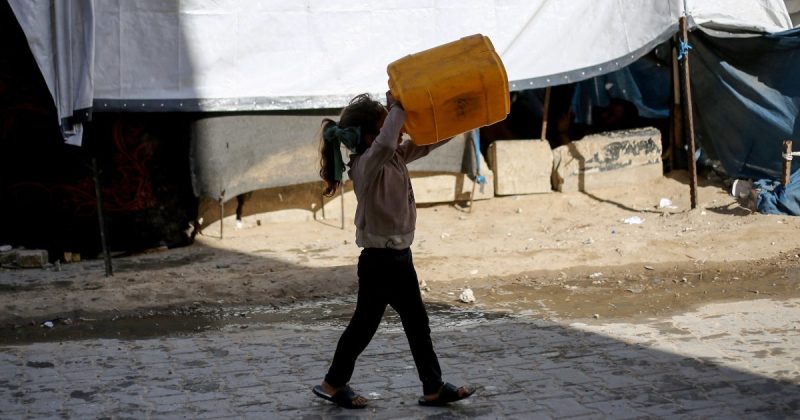
The ongoing conflict in Gaza has created a devastating water crisis for hundreds of thousands of residents. A main water pipeline, supplying clean water to Gaza City, was damaged during recent Israeli military operations, leaving many without access to a vital resource. This disruption, coupled with pre-existing water scarcity issues, has plunged the region into a severe humanitarian emergency.
Residents are now forced to walk miles, often under perilous conditions, to obtain small amounts of water from remaining sources. Faten Nassar, a 42-year-old Gaza resident, described the desperate situation, highlighting the lack of water stations and delivery trucks, further exacerbating the challenges faced by the population.
While the Israeli military claims to be working to repair the damaged pipeline, the situation remains dire. A second pipeline supplying southern Gaza is still operational, but the overall water supply system is severely strained. The damage to infrastructure, coupled with pre-existing issues like salinity and pollution affecting the Coastal Aquifer Basin, means that even the available water is often unsafe for consumption.
The impact extends beyond simple inconvenience. The lack of clean water poses serious health risks, particularly for children and the elderly. The scarcity also affects sanitation and hygiene, creating an environment conducive to disease outbreaks. The crisis is further compounded by the displacement of over 2.3 million people, many of whom are now relying on dwindling and often contaminated water sources in remote areas.
The situation underscores the devastating consequences of prolonged conflict on civilian populations. The lack of access to clean water is not only a humanitarian issue but also a critical factor in the overall stability and well-being of the Gaza Strip. International aid organizations and humanitarian groups are calling for urgent action to address the crisis and provide safe, clean water to the affected population. The need for a swift resolution to the conflict remains paramount to alleviate the suffering of the people of Gaza and prevent further escalation of this dire humanitarian crisis.
The pre-existing water scarcity in Gaza, exacerbated by the conflict, already saw more than 85% of water and sanitation facilities out of service before the recent attacks. The minimum requirement for survival in emergencies is 15 liters per person per day, yet many residents are now receiving only 3-5 liters, significantly increasing the risk of dehydration and disease. The destruction of wells and desalination plants, combined with power and fuel cuts, further hinders the region’s ability to provide clean water to its people. Adel Al-Hourani, a 64-year-old resident, shared the immense challenges faced by the elderly in accessing even these limited water supplies.









